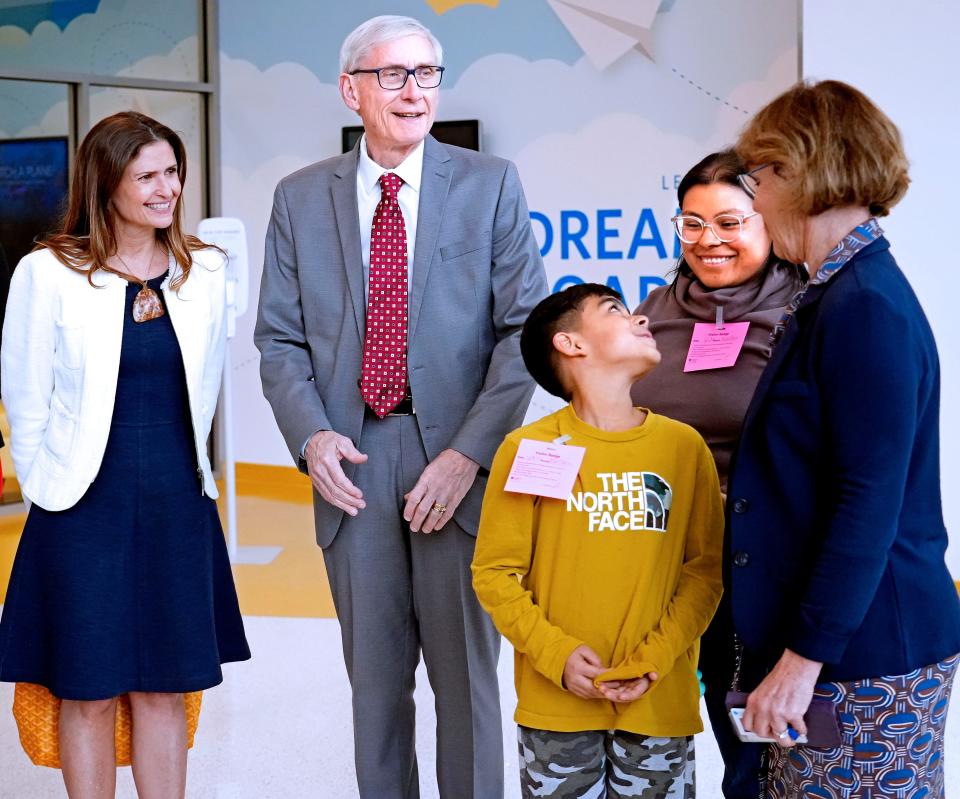Mental health is finally getting the attention it deserves. Here's what works. | Opinion
In Wisconsin, we have always thrived on a sense of community, resilience, and shared responsibility. These values have helped carry us through many shared struggles in recent years – from the COVID-19 public health response to the economic uncertainty that followed. It’s also these very values that we must unite around as we move forward in addressing an issue that impacts every facet of our lives: mental and behavioral health.
After the launch of the Speaker’s Task Force on Mental Health in 2013, legislators on both sides of the aisle have been dedicated to investing in mental health initiatives. Last year, Gov. Tony Evers also made a steadfast commitment to fostering change by declaring 2023 the year of mental health. Similarly, U.S. Surgeon General Dr. Vivek Murthy issued an advisory in May 2023 calling the epidemic of loneliness and isolation in the U.S. a public health crisis. The dedication from local, state, and federal governments shows that mental health is beginning to draw the attention it needs.
Data from the Office of Children’s Mental Health shows Wisconsin youth are experiencing alarming levels of anxiety, depression, self-harm and suicidal thoughts. The troubling numbers have led to local partnerships and community-based programs aimed at addressing the debilitating effects of mental illness, which impacts more than one in five Americans. Still, more work is needed to increase access to mental health care, rid our communities of dangerous stigmas, and grow the workforce to increase availability of care.

Wisconsin communities addressing mental health challenges
Thankfully, communities across Wisconsin are already taking action. The recently released Behavioral Health Strategy Guide from the Advancing Behavioral Health Initiative highlights progress being made in raising awareness of and addressing mental health challenges across the state. Drawing upon eight years of work in this area, the guide provides our communities with strategies proven to effectively combat the many mental health challenges we face.
I have witnessed remarkable efforts by community coalitions involved in this initiative to develop grass-roots solutions to the unique drivers of mental health illness in their areas. The 10 coalitions – which represent every corner of the state in urban, suburban, rural, and tribal communities – spent years making meaningful connections across sectors, planning and developing strategies to address the behavioral health needs in their communities. In the last two years, they’ve worked to embed successful strategies in their communities, so many of them live on well after the initiative ends. The programs they’ve enacted range from school-based mental health counseling to mental health first aid training for firefighters and EMS, to culturally relevant programs for the Lac du Flambeau tribal community in northern Wisconsin.
Lower quality. Higher prices. Board hasn't made case for MPS referendum.
The Advancing Behavioral Health Initiative has shown us that addressing these pressing issues requires people on the ground to lead the charge in their own communities. Taking a community-based approach addresses the nuances of local challenges, such as youth development in underserved communities and farmer mental health in rural Wisconsin. It also better involves people with lived experience operating in local systems in the decision-making process, providing unique and diverse perspectives and a deeper understanding of a region’s challenges.
Coalitions collaborate for unified approach to treatment
The Advancing Behavioral Health Initiative is unique in that it provided participating coalitions the funding, time, and professional support needed to see through their missions. Each coalition organized itself using a collective impact approach, uniting leaders and stakeholders from various sectors under a common set of goals and shared understanding of how to achieve them. In the truest sense of the words, it is changemaking in action.
From Racine to Bayfield, these community coalitions have been a driving force for change in their communities, and their efforts have demonstrated the power of unity, collaboration, and compassion. The tireless commitment of these organizations has also set the stage for a broader, more comprehensive movement toward improved mental well-being.
Wisconsin's shadow governor: The recall of Robin Vos may come up short, just like his favorability in poll
Despite this groundbreaking eight-year initiative coming to a close, the relationships and work generated from it will continue on – and so too will our dedication to addressing mental and behavioral health. The Strategy Guide provides a roadmap and an opportunity for individuals and community organizers alike to carry this work forward through replication in their own communities.
The tools to address mental health are at our fingertips – solutions are known, and they are easily accessible. Now, it’s time for us to continue the important work of providing community-based solutions to break the stigma and create a better future for our state. Together, we can foster a culture that prioritizes mental health and create proactive systems that improve our collective well-being for years to come.
Jesse Ehrenfeld, MD, MPH, FAMIA, FASA is director of the Advancing a Healthier Wisconsin Endowment, which sponsored the Advancing Behavioral Health Initiative project on mental and behavioral health. He is a senior associate dean at the Medical College of Wisconsin and president of the American Medical Association.
This article originally appeared on Milwaukee Journal Sentinel: There is hope to improve mental health and ease depression and anxiety
